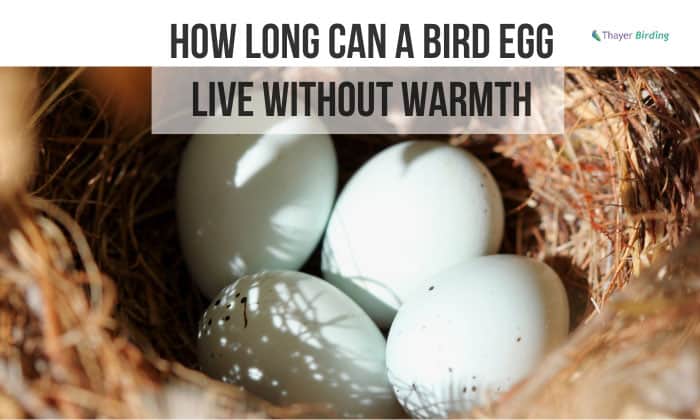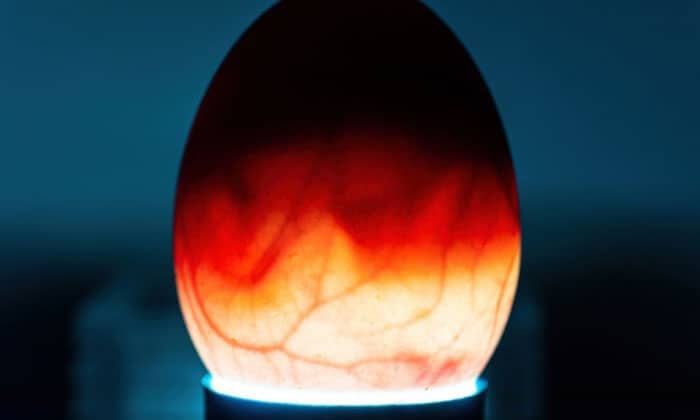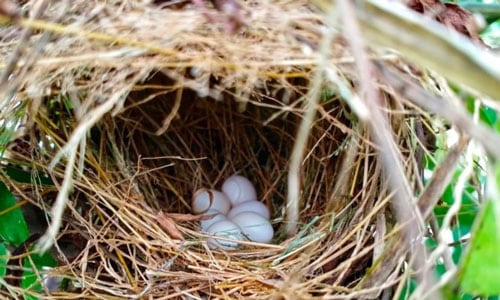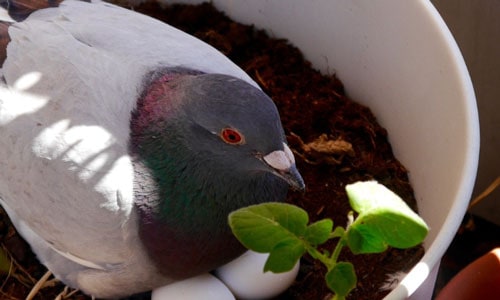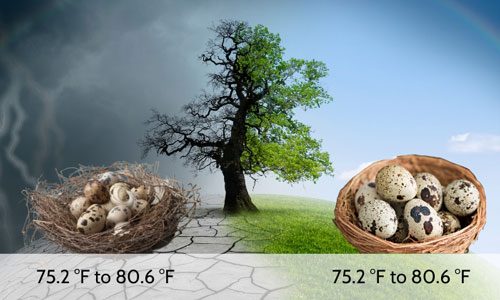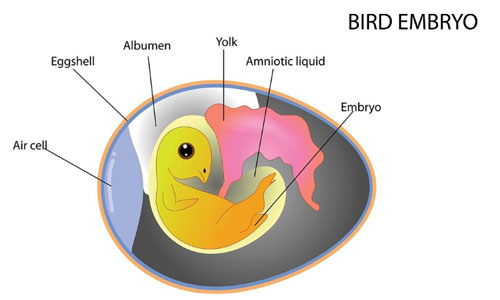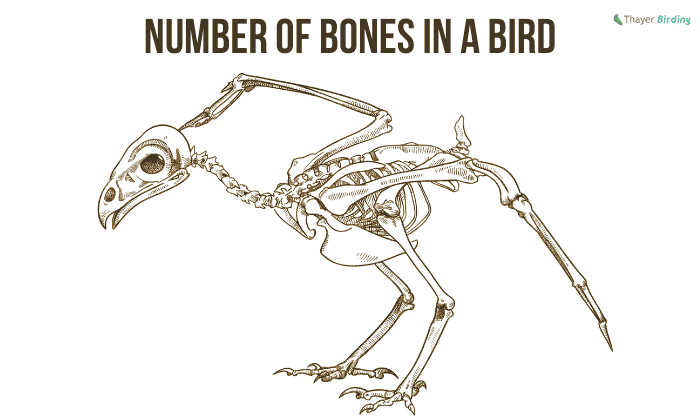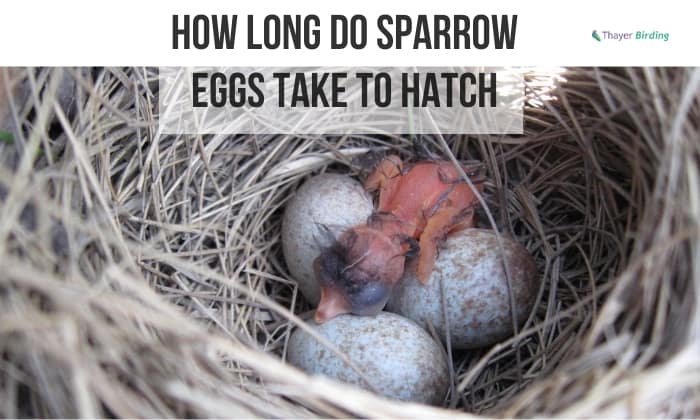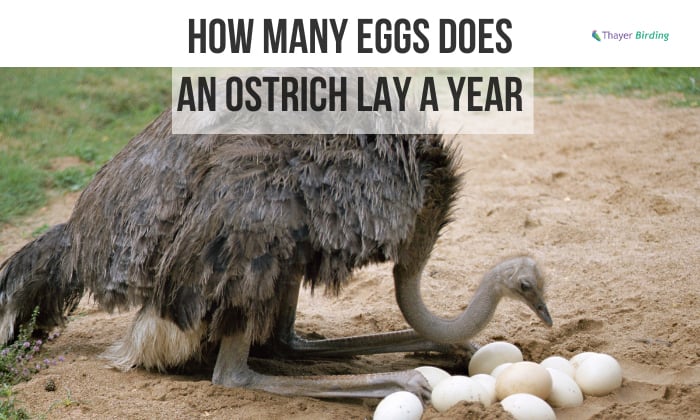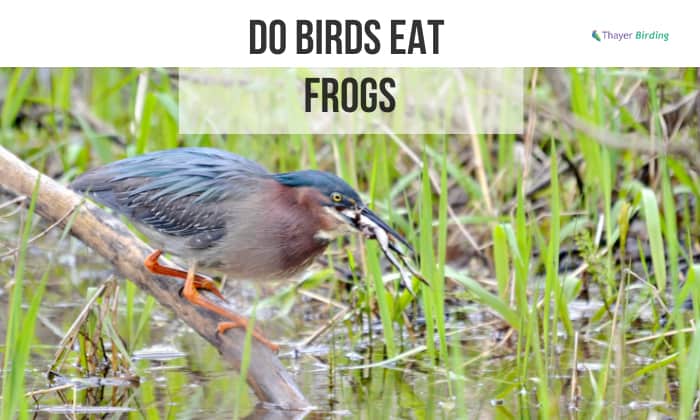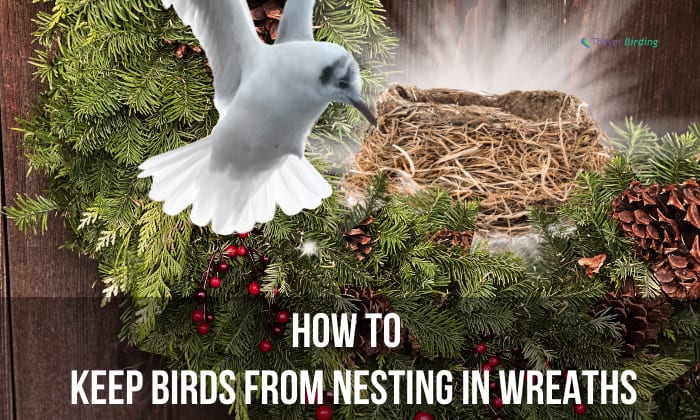When bird lovers see a nest left unattended, they usually think, “How long can a bird egg live without warmth?”
Fortunately, bird eggs (except those in frigid temperatures) can last hours to a week without warmth or incubation from their parents.
The varying duration is because several factors, such as environmental temperature, shell thickness, and egg age, affect an egg’s viability.
Table of Contents
Duration of Bird Egg Survival Without Warmth
These are different factors that affect how long a bird egg can survive without heat from its parent:
1. Stage of Development
Chick development is done in stages, and the stage an egg is currently in affects how viability:
Laying period/Pre-incubation
Birds do not incubate or sit on their eggs until all are laid.
That’s because incubation initiates the development process, so if eggs aren’t developed simultaneously, they will hatch at different times. To avoid that, parent birds avoid sitting on their eggs too early.
With that said, laying eggs is a process that can take 1 to 17 days to complete. Thus, new eggs can last longer without warmth, even up to two weeks, as they wait for the other eggs to be laid.
However, just because some eggs can last two weeks does not mean all can. Indeed, a 2005 study found that the longer newly laid bird eggs are exposed to unincubated or ambient temperatures, the lower their chances of hatching.
Incubation
Birds do not typically leave their eggs for long when incubating. Usually, they only go for thirty minutes or a few hours at most to look for food and eat.
Thus, if eggs were abandoned during incubation, it may only be viable for a few days. Some species may allow for up to two weeks, especially if the climate is warm. However, there is little chance the egg can survive longer than that.
Eggs must be incubated to proceed to proper development. That’s because, at non-incubation temperatures, the embryo may develop abnormalities or die early. Moreover, incubation hinders infection caused by microbes.
2. Environmental Temperature
The climate or weather of the area the eggs are in is a significant factor in the embryo’s viability.
Eggs can only survive in temperatures of 24 °C to 27 °C (75.2 °F to 80.6 °F), which is known as the physiological or developmental zero. Meanwhile, the incubation temperature range is 36 °C to 38 °C (96.8 °F to 100.4 °F).
Cold Temperatures
If eggs are exposed to low (but not too low) temperatures, development could be suspended, but the eggs will die eventually.
Thus, in icy climates, such as the polar caps where penguins live, eggs must be incubated the moment they’re laid. Even a few minutes of exposure to frigid temperatures could dramatically decrease the egg’s chances of survival.
Warm/Hot Temperatures
Meanwhile, eggs laid in warmer climates can withstand more extended periods, specifically one to two weeks, of not being incubated. However, that does not mean the results are favorable. Too-hot temperatures can also be detrimental to egg viability.
Meanwhile, if the temperature is above developmental zero (27 °C) but below incubation (36 °C), the egg may either develop abnormally or not develop at all. Thus, ideal temperature ranges are incredibly crucial not just to egg embryo survival but also to proper development.
3. Eggshell Thickness
Eggshells are crucial to bird embryos. They do not just protect the developing chick inside from the elements or UV rays. They also facilitate the exchange of gases and provide calcium and other nutrients to the embryo.
Thus, the eggshells must be of optimal thickness. Thick-shelled eggs tend to survive longer because they are more robust, have adequate calcium, and are less likely to be penetrated by contaminants.
Meanwhile, if they’re too thin, the embryo may not develop properly because they lack the nutrients they need to grow. Such eggs may also need extra parental attention to protect against the elements or predators.
Thin eggs are also more vulnerable when exposed to contaminants or toxins that degrade the shell quality. Therefore, if a with a thin shell is left alone without its mother or father, it may not last long.
FAQs
Will eggs still hatch if they get cold?
Eggs often cannot hatch if they get cold, especially at negative Celsius or freezing temperatures. However, if the temperature is slightly below 24 °C, the slim drop from developmental zero will only delay the eggs’ hatching time.
That is, the embryo will not die, and it can still develop and hatch once temperatures are improved. However, the longer an egg is left at such temperatures, its chances of survival and hatching are also lower.
What do you do with eggs that don’t hatch?
Suppose a month has passed and the eggs haven’t hatched; it’s alright for you to take them and dispose of them properly. However, you must be extremely sure that the eggs are not viable anymore.
Otherwise, if the bird eggs disappeared from a nest while they were still viable and it was discovered that you took them, you may face legal repercussions. In the US, the Migratory Bird Treaty Act explicitly prohibits you from taking and having viable bird eggs.
Conclusion
How long can a bird egg live without warmth? As you’ve learned, most avian eggs can last two weeks without their parents’ warmth and still be viable. However, that’s contingent on several factors.
For instance, a bird egg will not survive at extremely low and high temperatures because the heat or cold will hinder its development. Thus, for a bird egg to survive without warmth, several ideal conditions must be met, such as correct temperature and optimal shell thickness.

George and I became friends after a birdwatching trip with our new group. And we have been enjoying every adventure together. When he told me the idea of establishing a site that shares our experiences and fun, I immediately agreed. After trials and errors, here we have Thayerbirding.


